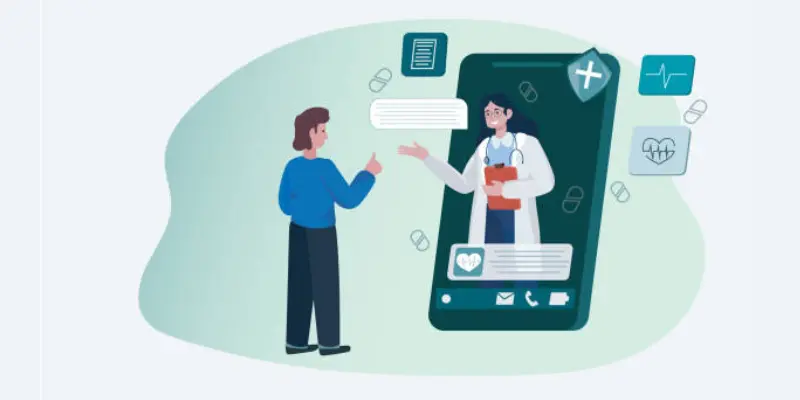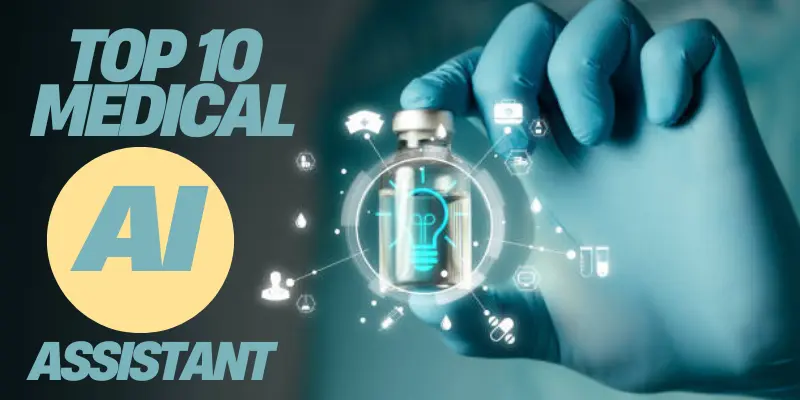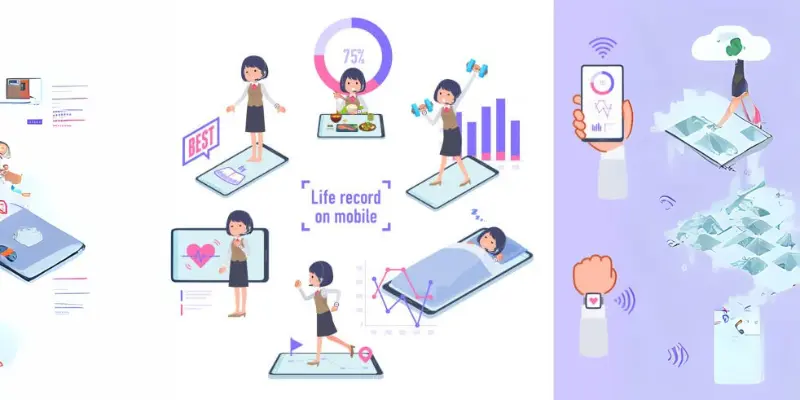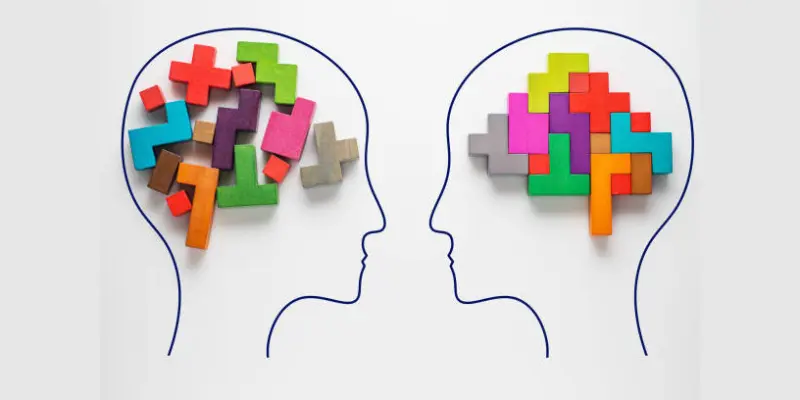What are the Best Medical AI Assistants
Published: 15 Apr 2025
Did you know that over 70% of patients now search online before visiting a doctor? That’s one reason the demand for the best medical AI assistant is growing very fast. These smart tools help people check symptoms, set health reminders and even talk to doctors all from their phones. They are changing the way we manage health, one question at a time.
Let’s explore what these medical AI assistants are, how they work and best AI assistants that can trust in your medical decisions.

What Is a Medical AI Assistant?
A medical AI assistant is a smart tool that helps with healthcare. It uses technology to understand health questions, check symptoms and give useful advice. Some AI assistants talk like a chatbot. Others help doctors by sorting patient data.
You can think of them as digital helpers. They work on phones, apps and even hospital systems. They don’t replace doctors but support them. And they make it easier for patients to get answers quickly.
Why Are Medical AI Assistants Important Today?
Healthcare can be slow and stressful. People wait in long lines or feel unsure about their symptoms. That’s where medical AI assistants help.
They give fast answers. They guide patients to the right care. They also take care of small tasks like setting reminders, booking appointments or asking health questions.
Here’s a quick example:
If you wake up with a sore throat, you can open an AI app like Ada Health. It will ask you simple questions. Based on your answers, it gives helpful tips or suggests if you should see a doctor.
These tools are growing fast. Many hospitals and clinics are using them now. They are not just for patients but also help doctors and nurses save time too.
How Medical AI Assistants Work
Medical AI assistants use something called smart AI algorithms. But don’t worry, it’s not as complicated as it sounds.
Think of AI as a smart brain built into an app or computer. It learns from a lot of health data like symptoms, diseases and treatments. Then it uses that knowledge to help people with health questions.
These assistants don’t guess. They follow patterns. If someone says they have a fever and sore throat, the AI checks its data, compares it with different patterns and gives helpful advice based on what it has learned.
What These Tools Usually Do
Most medical AI assistants have features that make life easier. Here are some of the most common things they can do:
- Symptom Checkers
Ask questions and suggest what might be wrong. - Health Chatbots
Talk like a real person and answer health-related questions. - Medication Reminders
Send alerts so patients don’t forget their pills. - Appointment Helpers
Helps in booking or managing doctor visits. - Care Tips
Share daily health advice based on your needs.
An Example
Let’s say you’re not feeling well. You open the Buoy Health app. It starts by asking easy questions like:
“What symptoms do you have?”
“How long have you felt this way?”
After just a few answers, the AI gives you options. It might say:
“You can rest at home,” or
“You should talk to a doctor.”
It’s like chatting with a nurse online for quick and helpful suggestions.
Top 10 Medical AI Assistants You Should Know
These AI tools are making healthcare faster, easier and more helpful. Let’s take a look at some of the best ones being used today. You don’t need to be a tech expert to use them; they are made for everyday people like you.
Also Read Famous AI Companies in Patient Engagement.

1. Babylon Health
Babylon is a popular AI assistant used in many countries. It helps the users to check their symptoms and talk to doctors through an app.
Example: In the UK, the National Health Service (NHS) uses Babylon to offer video consultations. It saves time for both patients and doctors.
2. Buoy Health
Buoy is like a smart helper that listens to your symptoms and gives advice. It’s easy to use and asks clear and step by step questions.
Example: A person with a fever might use Buoy to find out if they need to rest at home or see a doctor.
3. Ada Health
Ada works like a health quiz. You answer simple questions and it helps in figuring out what could be wrong.
Example: A mom could use Ada to check why her child has a rash without having to rush to the clinic right away.
4. Your.MD
This AI assistant focuses on self-care. It gives health tips and connects users to trusted services.
Example: You can ask questions like, “What can I do for a headache?” and get safe, simple answers.
5. HealthTap
HealthTap combines AI with real doctors. The assistant first checks your symptoms. Then, if needed, it connects you to a real doctor.
Example: A person feeling chest pain can get fast advice and book a video call with a licensed doctor.
6. Sensely
Sensely uses a friendly virtual nurse named Molly. She talks with users, checks symptoms and gives follow-up care tips.
Example: Hospitals use Sensely to stay in touch with patients after they go home from treatment.
AI companies are also making changes in surgeries where AI-Assisted robots take on the charge during precise surgery.
7. Infermedica
This AI is often used in clinics and hospitals. It helps doctors ask the right questions and sort patient cases.
Example: Before seeing a doctor, patients answer AI-powered questions so staff can prepare better care.
8. Florence
Florence is like a digital nurse that reminds patients to take their medicine. It also tracks your health habits.
Example: If someone keeps forgetting their pills, Florence sends gentle reminders through messages.
Also Read: Top AI Startups in Healthcare
9. Quro (by Healthily)
Quro checks symptoms and creates personalized health plans. It’s fast, friendly and easy to follow.
Example: Someone with recurring stomach issues might use Quro to track symptoms and learn what to avoid.
10. WELL Health AI Assistant
WELL Health helps clinics talk to patients through texts, emails and phone calls. It answers common questions and sends reminders.
Example: A clinic might use WELL to remind patients about checkups or test results.
These medical AI assistants are making healthcare simpler and smarter. Whether you are managing a cold, checking symptoms or keeping up with medication, there’s a tool out there that can help.
Suggested Article: Top 10 Radiology AI Companies
Benefits of Using a Medical AI Assistant
Medical AI assistants are changing the way people take care of their health. They save time, reduce stress and help both patients and doctors. Let’s look at some of the top benefits.

Quick Answers Anytime
You don’t have to wait in line or call a clinic. These AI tools are always ready. Just open the app, ask your question and get help in minutes.
Easy to Use
Most AI assistants ask simple questions in a friendly way. You don’t need to know medical terms. Just answer like you are chatting with a friend.
Saves Time for Doctors
Some AI tools help doctors by collecting patient info before the visit. This helps them focus on treatment, not paperwork.
Helps With Daily Health Tasks
AI assistants remind you to take medicine, drink water or book checkups. This keeps you on track with your health goals.
Gives Peace of Mind
When you are not sure what to do, an AI assistant can guide you. It won’t replace a doctor but it gives helpful advice fast.
Supports Mental Health Too
Some tools now help with stress and anxiety. They check how you are feeling and suggest calming tips or activities.
Works for Everyone
Whether you’re young or old, tech-savvy or not, these tools are designed for all. Many use voice, pictures, or simple buttons.
Available 24/7
No matter the time or place, these assistants are ready. You don’t need to wait for business hours.
Affordable or Free
Many AI assistants are free to use or included in health plans. They make basic care more accessible for everyone.
Great for Tracking Health Over Time
Some apps let you save your symptoms, notes and health data. This helps you and your doctor to see patterns and make better choices.
Things to Consider Before Choosing a Medical AI Assistant
There are many AI assistants out there but not all of them are the same. Before picking one, it’s smart to look at a few things. Here’s what you should check to find the right fit for your health needs.

1. Is It Easy to Use?
Pick an AI assistant that’s simple to use. The app should ask clear questions and guide you step-by-step.
Tip: Try a free version first to see if it feels easy and comfortable.
2. What Kind of Help Does It Offer?
Some AI assistants only check symptoms. Others remind you to take medicine or book appointments.
Tip: Choose one that matches what you need like daily reminders or mental health check-ins.
3. Is It Trusted and Safe?
Look for apps made by real doctors or approved by health groups. The best ones follow strict rules to protect your health information.
Example: Ada Health and Buoy Health work with medical experts to stay safe and accurate.
4. Can It Connect You to a Doctor?
Some AI assistants only give advice. Others help you talk to real doctors through video or chat.
Tip: If you want live help, go for tools like HealthTap or Babylon.
5. Is Your Data Secure?
Always check if your personal health info is protected. The app should not share your data without your permission.
Tip: Look for words like “HIPAA-compliant” or “data encryption” in the app’s privacy section.
6. Does It Work in Your Country or Region?
Not all apps work everywhere. Some features only work in certain countries.
Tip: Before signing up, make sure it supports your location and language.
7. Is It Free or Paid?
Many apps are free to start. But some offer extra features that cost money.
Tip: Check prices before buying and see if the free version does what you need.
8. Is It for Patients, Doctors or Both?
Some AI assistants are built just for doctors. Others are made for regular users.
Example: Infermedica is used more by clinics while Florence is better for personal health reminders.
Taking a few minutes to check these things can save time and trouble later. A good AI assistant should feel like a helpful health partner, not a confusing tool.
Real-Life Uses and Success Stories
Medical AI assistants are already making a big difference in people’s lives. They are helping patients stay on track and saving time for doctors too. Let’s look at how these tools are being used in real life.
- Babylon in the UK
The UK’s National Health Service (NHS) teamed up with Babylon to offer video doctor visits. Many patients now get advice and prescriptions without leaving home. - Sensely in Hospitals
Some hospitals use Sensely’s AI nurse “Molly” to check in with patients after surgery. It reminds them about medicine and tracks their healing progress. - Buoy Health in the U.S.
Buoy helps millions of Americans understand their symptoms at home. It has helped to reduce unnecessary clinic visits and ER trips. - Florence for Medication Reminders
People who used to forget their medicine now rely on Florence. The friendly reminders help them stay healthy every day.
Suggested Article: How to Boost Your Career in Healthcare AI
Challenges in Using Medical AI Assistants
Even though AI assistants are helpful, people still face some problems:
- 🔒 Privacy worries— Some users fear their health info might not stay private.
- 😇 Limited understanding— AI can sometimes misunderstand complex health issues.
- 🌍 Not available everywhere— Some tools only work in certain countries or languages.
- 👨⚕️ Not a replacement for doctors— They give advice but you still need a doctor for serious health problems.
- 💬 Lack of human touch— Some people prefer real conversations with nurses or doctors.
- 💡 Needs internet— These tools usually don’t work without a stable internet connection.
- 📲 Tech confusion— Older users or those unfamiliar with apps might find them hard to use.
Conclusion
So guys, in this article, we covered the best medical AI assistants in detail. If you are just starting out, I personally recommend trying Ada Health. It’s simple, trusted and great for everyday health questions. Give it a try and see how much easier it feels to manage your health. If you found this helpful, feel free to explore more AI Health tech tips right here!
Related Queries About Medical AI Assistants
Here are frequently asked questions about the use of AI assistants in medical help;
Medical AI assistants provide helpful guidance but are not as accurate as trained physicians. They are designed to complement medical professionals not replace them. Always consult a doctor for serious health concerns.
Many medical AI assistants offer free basic versions with premium features available at a cost. Some are fully free while others might be covered by your health insurance plan. Check each app’s pricing structure before committing to a subscription.
Most medical AI assistants work with information you manually provide during each session. Some can integrate with electronic health records if you grant permission. Privacy policies vary by app, so always review how your data will be used before sharing sensitive health information.
Medical AI assistants typically include disclaimers that their guidance isn’t definitive medical advice. If you follow harmful advice, the company’s liability is often limited by their terms of service. This is why serious symptoms should always be verified with healthcare professionals.
Most medical AI assistants are designed with simplicity and accessibility in mind. Many feature user-friendly interfaces with large text, voice input options and straightforward navigation. Family members can help set up the app initially if needed.
Most medical AI assistants require an internet connection to function properly. Some apps may offer limited offline features for saved information. Consider your connectivity situation before relying on an AI assistant for health management.
Choose based on your specific health needs such as symptom checking, medication reminders or doctor connectivity. Try free versions of a few different assistants to see which interface feels most intuitive. Consider reviews from other users with similar health concerns.
Availability varies significantly between different medical AI assistants. Some operate globally while others are limited to specific countries or regions. Check the app’s description or website for information about availability in your location.
Quality medical AI assistants are regularly updated with the latest medical research and guidelines. Most reputable tools have medical teams that review and update their knowledge bases. Check if the app mentions their update frequency or medical review process.
Some medical AI assistants now include mental health assessment tools and resources. They can provide initial guidance, stress management techniques and symptom tracking for common conditions. For serious mental health concerns, they will typically recommend professional help.





